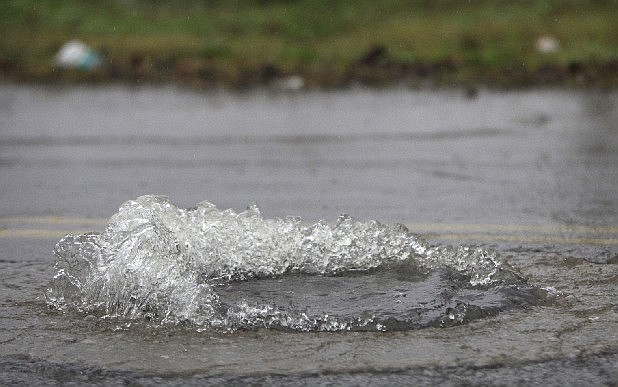Where to pay your sewer bill
Starting July 1, city residents can go to City Hall or a First Tennessee Bank branch to pay their bill in person or pay online.
After more than two years of city residents' complaints, Chattanooga is cutting ties with the California-based utility company that was contracted for nearly $1 million a year to send out bills for sewer fees.
City officials said they will take over billing on July 1, expanding residents' options to pay in cash at City Hall and eliminating a loathed $3 credit card service fee. The move will cut Chattanooga's cost for sewer billing services in half, officials said.
"The ideal scenario is making it easier to do business with the city," said Councilman Ken Smith, who helped work on the initiative. "The easier we make the process for [residents], the easier it will be to continue growing as a city."
Disgruntled customers have complained for two years about poor service from ENCO Utility Services: receiving bills very close to the payment deadlines, paying an extra fee to use a credit card, and having no way to pay bills locally or in cash.
The city, along with the Hamilton County Water & Wastewater Authority and the town of Rossville, signed a four-year contract with ENCO after Tennessee American Water decided to stop issuing combined water and sewer bills. ENCO took over billing in January 2013.
ENCO's vice president of customer service, Ruby Irigoyen, said the $3 credit card processing fee is normally bundled with the sewer fee in customer bills. It was the city's decision to list the fee separately, she said. As for customer service, she said the city has always been responsible for addressing customers' concerns.
"Their customer service has nothing to do with ENCO," she said.
City officials didn't anticipate one effect of separate water and sewer bills: In 2013, about 25 percent of Chattanooga customers just didn't pay their sewer bills. Faced with nearly $2 million in outstanding sewer fees, city officials announced in October 2013 they were exploring how to turn off the water of residents with unpaid bills. But the City Council balked at the idea, saying residents' complaints needed to be addressed first.
As losses climbed to $2.7 million, city Chief Operating Officer Brent Goldberg said in March 2014 that the city was exploring options to cut ties with ENCO after giving the company a year's notice.
In June, about 100 businesses and homes where residents owed $1,000 or more had their water turned off, officials said. After a media blitz, the city began to turn off water for other locations with outstanding bills, about 200 to 250 locations weekly. But overdue sewer bills are still at nearly $1 million in arrears.
The city didn't notify ENCO until October that it wanted to end the contract, and that the company agreed to an early end without any additional fees. That gives the city time to introduce its system in July.
While the city said it will cost about $500,000 to operate the sewer billing in-house, officials spent about $1.2 million to purchase new software for billing and collection.
But Lacie Stone, spokeswoman for Mayor Andy Berke, said the software was primarily purchased to update the city's property tax billing. That system that was so old, employees still had to use floppy disks and only Internet Explorer would support it when a customer tried to pay online. The new software allows officials to do other billing as well, she said.
When the City Council renewed its contract with an outside firm that processes credit card payments in April, council members approved up to $100,000 in fees to pay the credit card processing fee for sewer billing, Stone said.
"The change in bill processing allows the city to provide our customers with local payment options at no additional fees," Stone said. "By doing our own billing, we are cutting the cost in half, saving taxpayer dollars."
Hamilton County Water & Wastewater Authority officials say the entity is satisfied with ENCO's billing services. When bills were first issued separately, WWTA's collection rate plummeted, said Chris Clem, WWTA's attorney, but officials have been able to collect past-due sewer bills to gain a 96 percent collection rate.
"When we did our cost-benefit analyst, we determined it would be far more expensive to do it in-house," he said.
Contact staff writer Joy Lukachick Smith at jsmith@timesfreepress.com or 423-757-6659.
